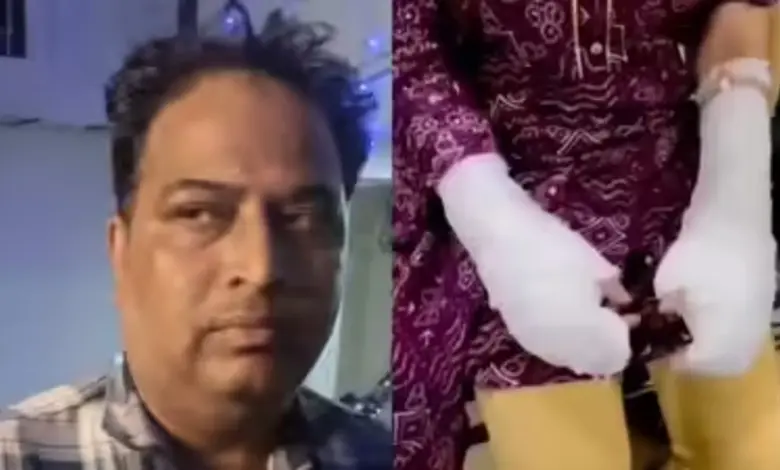New Delhi: A shocking development has emerged in the case of an alleged acid attack on a 19-year-old Delhi University student, casting serious doubt on the initial account provided by the victim. Authorities have detained the young woman’s father, Akil Khan, on charges of sexually assaulting the spouse of one of the individuals the student had accused of stalking her.
According to investigators, Khan admitted to orchestrating the false narrative surrounding the acid incident as retaliation. “He confessed to fabricating the acid attack story because the woman had filed a complaint against him, and he wanted to implicate her husband in the acid attack case,” police stated in an official update.
The probe traces back to an emergency call made two days prior to the reported assault, when the accuser’s wife contacted the Police Control Room (PCR). She claimed that during her employment at Khan’s factory from 2021 to 2024, he subjected her to repeated sexual harassment, coerced her into physical relations, and extorted her using compromising photographs and videos.
Further complicating the matter, officers uncovered a longstanding property disagreement between the mother of two other named suspects and members of Khan’s extended family. During questioning, detectives noted multiple discrepancies in the student’s statement. Crucially, surveillance and witness checks confirmed that none of the three men she identified were in the vicinity when the incident purportedly occurred.
Preliminary findings suggest the burns on the student’s hands may have resulted from exposure to a caustic toilet-cleaning solution, rather than acid thrown by assailants. Officials are awaiting forensic medical analysis to verify this theory.
The episode unfolded around 10:52 a.m. on Sunday, as the student made her way to campus. She reported being ambushed by three attackers, one of whom she described as a persistent stalker over the previous year. A formal complaint was promptly lodged, triggering an immediate investigation. Yet, as inquiries deepened, the inconsistencies began to mount, prompting a reevaluation of the entire sequence of events.
This case highlights the complexities of domestic conflicts intersecting with public safety claims, underscoring the vital role of thorough police scrutiny in Delhi’s bustling urban landscape.
